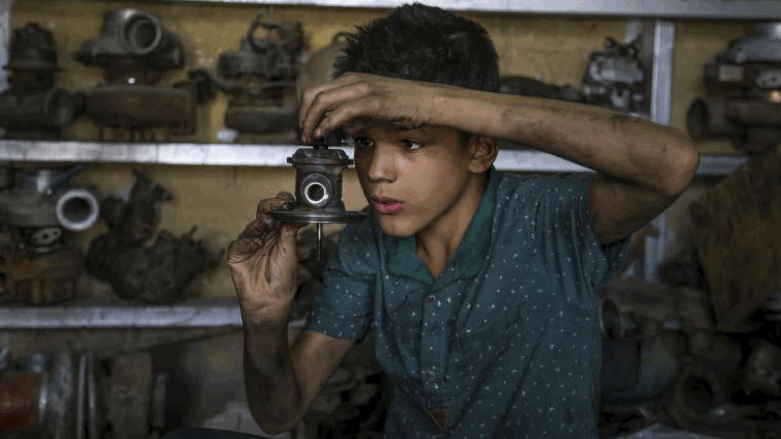SEED calls on Iraq to bolster protections against the worst forms of child labor

ERBIL (Kurdistan 24) – On the occasion of World Day Against Child Labor, the Erbil-based SEED Foundation applauded the Iraqi government's steps to develop its first Child Protection Law, but warned more should be done.
The SEED Foundation said that ever since the ISIS conflict in Iraq began, thousands of children have been recruited or used by armed groups as scouts, porters, messengers, cooks, cleaners, domestic workers, and soldiers. Children have even been forced into sexual slavery and marriage.
Therefore, SEED commended the Iraqi government for prohibiting the recruitment and use of children within the draft Child Protection Law.
SEED’s Policy and Advocacy Manager, Kristin Perry, told Kurdistan 24 that “in the nearly 9 years that have passed since the ISIS invasion, the Government of Iraq has not passed legislation that explicitly prohibits the recruitment and use of children by non-state armed groups.”
“We also don't have disarmament, demobilization, and reintegration (DDR) or other comprehensive formal programming to support the recovery of children released from armed forces and groups.”
Moreover, she noted that children continue to face recruitment and use at the hands of armed groups across Iraq, making this a critical protection risk for both the present and the future.
“The draft Child Protection Law being considered in parliament takes an essential step toward prohibiting the recruitment and use of children, but this prohibition should be expanded to ensure compliance with applicable frameworks and equitable protection for all affected children, and should be complemented by robust provisions to ensure children whose rights have been violated can access needed services and support,” she concluded.
